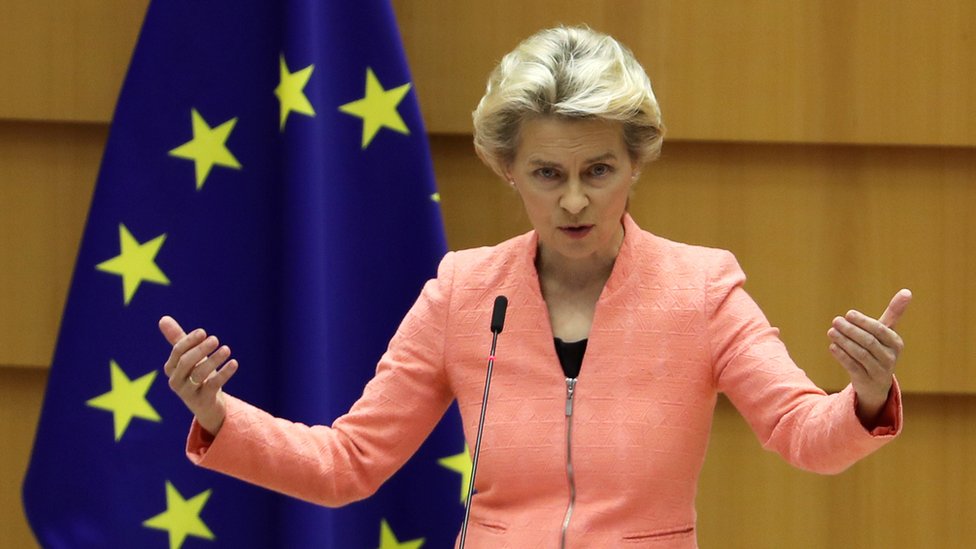
image copyrightReuters
European Commission President Ursula von der Leyen has delivered her first State of the Union address, outlining her vision for the future of the European Union (EU).
Here are five key areas Mrs von der Leyen touched on in her wide-ranging speech.
1) Climate change
“There is no more urgent need for acceleration than when it comes to the future of our fragile planet,” Mrs von der Leyen said.
“While much of the world’s activity froze during lockdowns and shutdowns, the planet continued to get dangerously hotter,” she added. “The 2030 target is ambitious, achievable, and beneficial.”
EU leaders will meet to agree on the target next month, but resistance is expected from some eastern European countries that largely rely on coal for their energy. Most states back such a target, however.
“I will insist that recovery plans don’t just bring us out of the crisis but also help us propel Europe forward in the world of tomorrow,” she said.
2) Coronavirus
But Mrs von der Leyen praised the EU’s multi-million euro recovery package, which was agreed after four nights of talks, as a “chance to make change happen by design, and not by disaster”.
“We turned fear and division between member states into confidence in our union,” she said. “We showed what is possible when we trust each other.”
The former German defence minister also announced that a global health summit would take place next year in Italy, and that the EU would build a new agency for biomedical research and development.
3) Brexit
“[The withdrawal agreement] cannot be unilaterally changed, disregarded or dis-applied. This a matter of law, trust and good faith,” she added.
The UK government has said the bill is a “vital safety net” needed in the event that a trade agreement is not reached. But the government has also said it breaks international law, and the EU wants the legislation scrapped.
“The Withdrawal Agreement took three years to negotiate and we worked relentlessly on it. Line by line, word by word,” Mrs Von der Leyen said.
4) Technology
Mrs Von der Leyen said that 20% of the €750bn coronavirus recovery package would be invested in digital projects, with a further €8bn spent on the next generation of supercomputers.
She called for a “twin green and digital transition” at a time when “the global competitive landscape is fundamentally changing”.
5) Migration
“Next week, the Commission will put forward its New Pact on Migration,” she added. “We will take a human and humane approach. Saving lives at sea is not optional.”
More on this story






